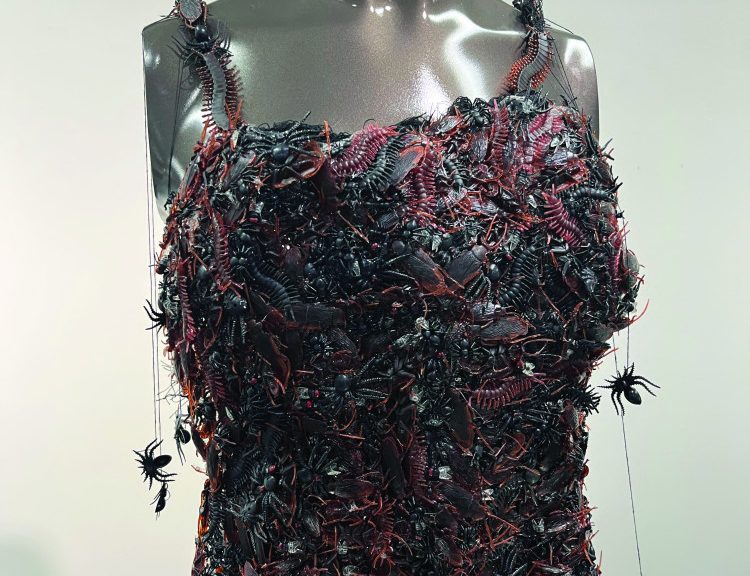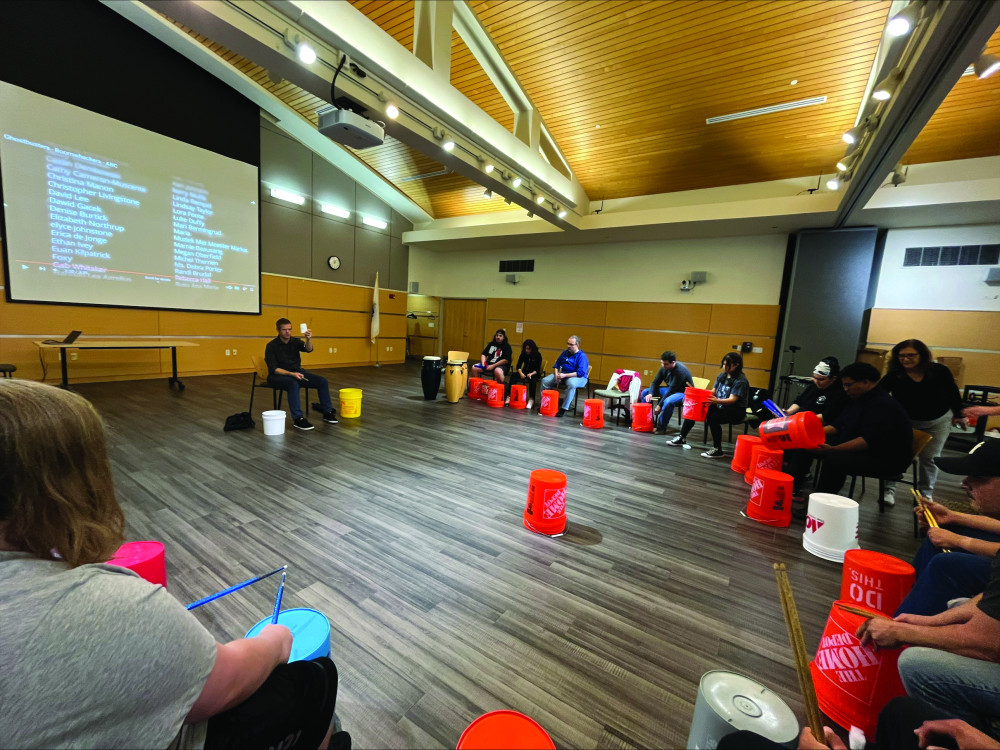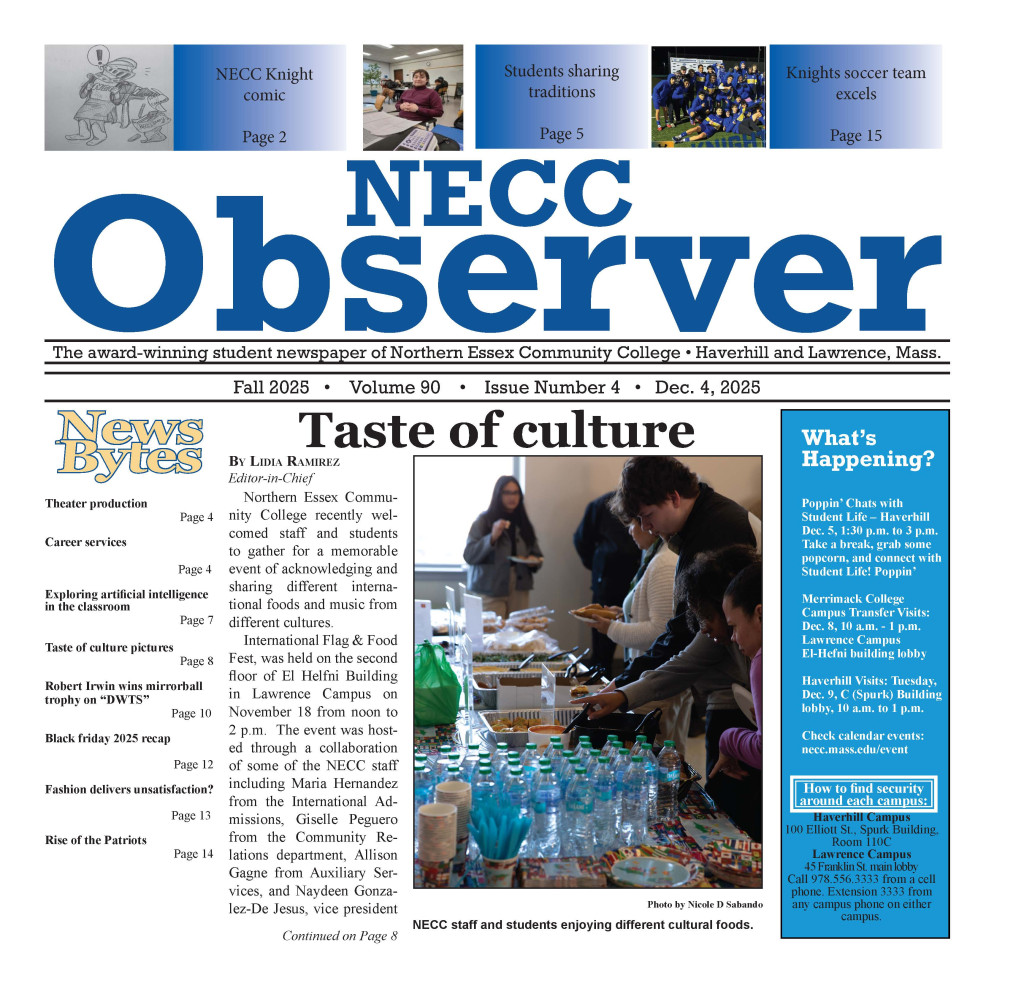
In the back of the library there is a quaint and modest room that some may never have stepped foot in. Its clean white walls and large glass windows perfectly allow for the minimalistic kind of backdrop needed for an NECC student art show. Two weeks ago on a raw, rainy Thursday afternoon that’s exactly what happened.
Here in the campus showroom the students of Art 108 WIP (Work In Progress) laid out their labors, be it experimental and exploratory or driven and purposeful.
The class had spent much of the semester creating in response to prompts and getting a feel for the artistic process.
The prompts, from art faculty Dianne Pappas, ranged from making creative sense out of plastic red solo cups and coat hangers to abstract chess prompts and geometric forms.

An intimate group of 40 or so people, artists and otherwise milled about the gallery exploring the art, reading artists statements and perusing the provided snack table.
The self-guided walkthrough portion of gallery engagement came to a close when Pappas gathered the room and delivered a final prompt to her students; to speak about their work. There was a mixture of shyness and exuberance from the artists but those who opted for silence still spoke loudly through their work.
Some of the great art on display included abstract vinyl art, inventive wire and aluminum foil combos, plaster and clay pieces, a unique interactive piece of bamboo and concrete and an art/fashion piece: a top composed of plastic insects. Those were just a few of the examples of innovation and artistic exploration on display.
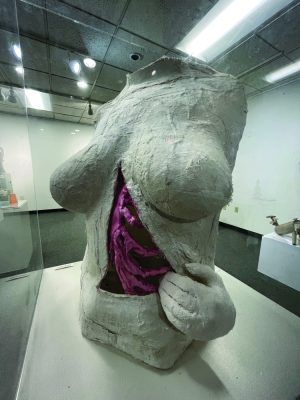
“I used my body.” said liberal arts major Emily Lewis, 20, referring to an intriguing plaster mold of a human torso peeling back part of itself to expose pink ribs. “It’s about body issues and feeling uncomfortable in your own skin. I used to struggle with that and that’s why I made it.”
Upon arriving at NECC Emily was studying environmental science but as she got involved with the arts program it allowed her to engage in making art and explore her creative talents like never before.
Maggie Arnold, 22, of Andover, was the artist behind the bug shirt. After dipping her toe in at Plymouth State University for environmental science in 2020 she subsequently took a few gap years and got involved in art therapy.
“I’ve always been a creative person my whole life but to me it was always just gonna be a hobby. My parents said you need to go to school and you need to do something serious, something that’s going to make you money,” Arnold said.
But after trying her hand in something more ‘typical’ to a monetarily incentivized career at Plymouth State she seized the opportunity of engrossing herself in her creative passions at NECC with the hailing of the Mass Reconnect bill.
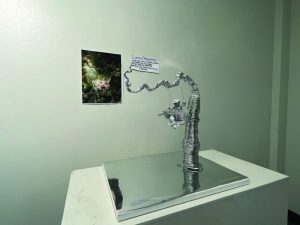
“I wanna see what I can do, I wanna challenge myself. I’m really grateful that we’re given these types of opportunities to display our work, get real feedback from people, learn how to speak about our work. I want to learn the discipline and this is what I wanna do full time in life so I really appreciate NECC for giving me and everyone else here an opportunity,” Arnold said.
One of the most ambitious and provoking pieces on display was by Lacey ‘Rozie’ Cominksy of Gloucester. She initially conceived the idea while contemplating the need for public art on campus. As she looked down on a drain and thought about where it led, she imagined being underneath it and looking up from the swamp it led to. Through both tumult and result of this contentious election cycle she channeled her energy into the creation of this reflective piece and decided to name it ‘Swamp The Drain.’

